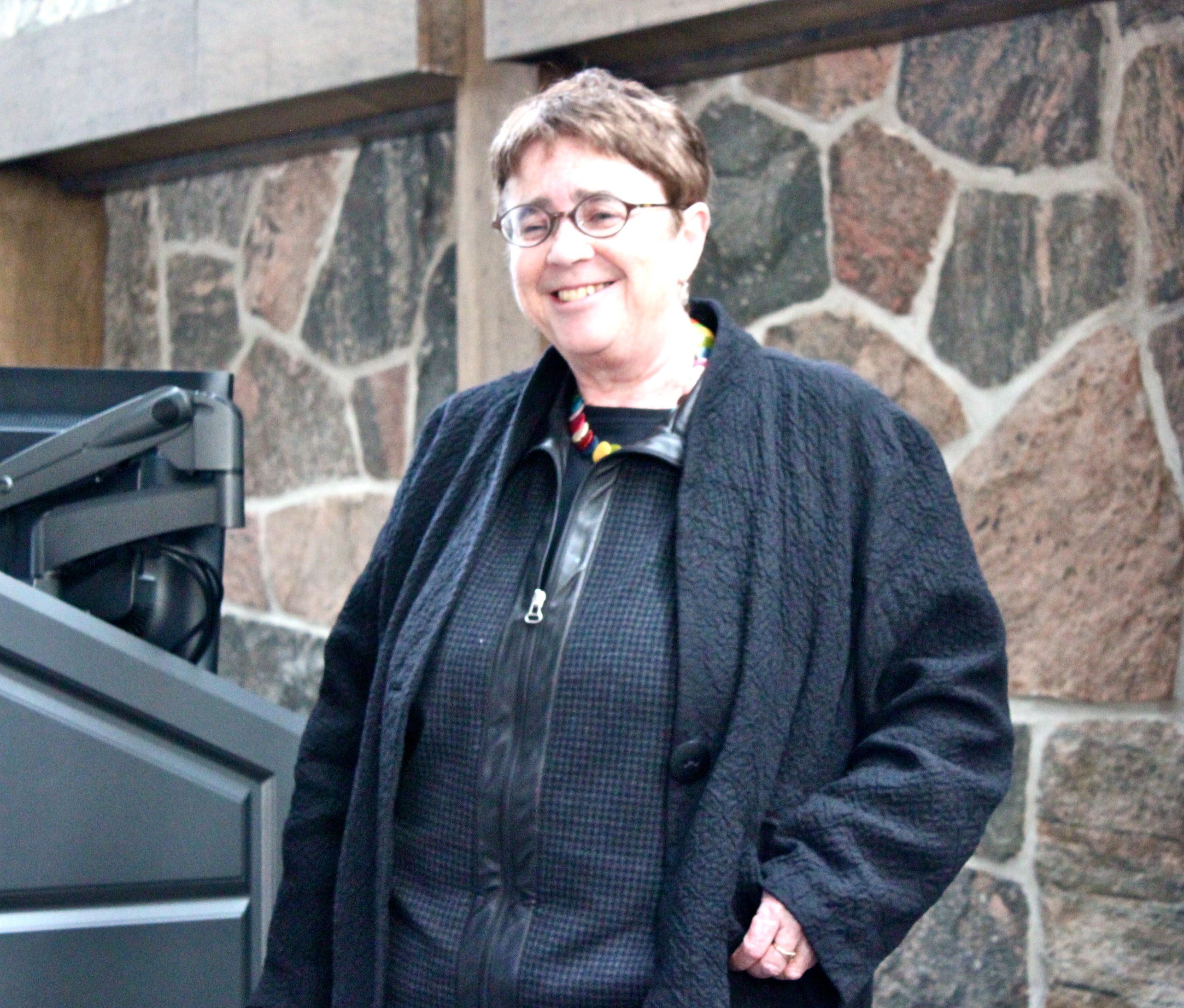
Povnet began in 1997 when representatives from all over B.C. wanted a user-friendly, confidential, and cost efficient method to communicate among poverty law advocates and community workers. The solution was obvious- the Internet was rising in popularity as a place for like-minded people to gather and collaborate. Since that time, Povnet has grown to become an online tool that facilitates thoughtful discussion, access to poverty-related resources and learning opportunities through customized online courses.
Penny Goldsmith is an inaugural Carold Institute Visiting Fellow and she facilitated a student and faculty discussion last week at St. Paul’s University College. We are so fortunate to have had a Canadian leader that promotes civil society and voluntary action on our campus and we hope that you enjoy this synopsis of her experiences at Waterloo.
Penny was the perfect candidate for Prateep Nayak’s International Development class that was hosting a discussion around the advantages and disadvantages of technology in developing countries. In some cases, technology has been catalyst that has reduced poverty: such as in the case of OneProsper, drip irrigation technology has assisted small farmers immensely. On the other hand, as Penny described,
We do not want people to be marginalized by technology in a society where they are currently marginalized.
Since Povnet is an advocate organization primarily accessed through the Internet, it was important to examine the effectiveness of the information reaching its target market: poverty citizens that are marginalized by society. Some of these marginalized citizens do not have everyday access to a computer, which is often a basic assumption society makes. While Penny honours the fact that although Povnet’s initiatives such as Advocapedia - a wiki page that allows advocates to upload anonymized legal arguments and submissions in welfare law - have assisted advocate communication leaps and bounds, it is just as important to host community sessions to dissipate information to those individuals who need it most.
As an eager student my initial questions for Penny were “what types of programs is Povnet getting involved in? Is there opportunity to expand in to other provinces? And, what kind of funding is required?” But Penny made it clear how important it is to have good relationships between advocates, stakeholders and government in their current market before making any plans for expansion. “Good relationships will be the key to creating systemic and meaningful change,” says Penny.
However, there is always room for assistance. After seeing the amount of knowledge and skills students have in social media, Penny was ecstatic about the great benefits that students can provide to Povnet. If you are interested in assisting Povnet on their journey to end poverty please contact penny@povnet.org.
The University of Waterloo would like to thank Penny for facilitating thoughtful discussion and we wish Povnet great success in their future endeavors.